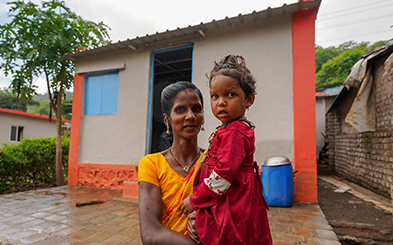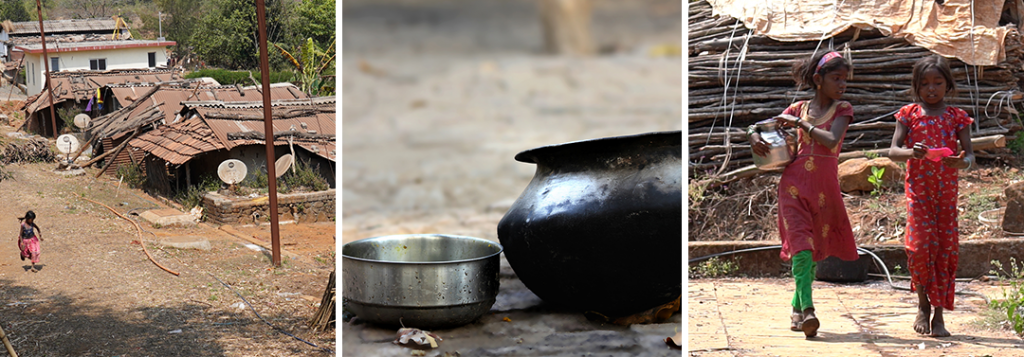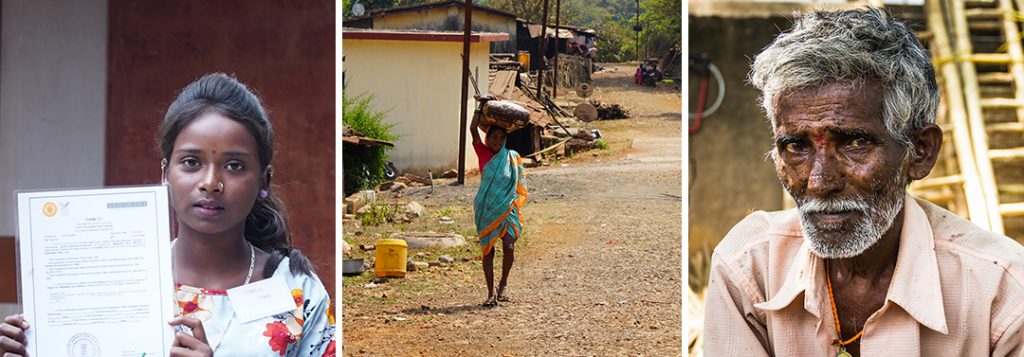CSR
The Katkaris: Guardians of a Rich Legacy

May 23, 2024
Nestled in the forests and rivers of Maharashtra, the Katkari are one of India’s Particularly Vulnerable Tribal Groups (PVTGs). Traditionally skilled in fishing, foraging, and forest-based livelihoods, their lives were once harmoniously intertwined with nature. Their language, a dialect of Konkani, reflects their rich cultural heritage, and their traditions are deeply rooted in their bond with the environment.
However, time and development have not been kind to this community. With deforestation and dwindling natural resources, the Katkari have been forced to abandon their ancestral way of life, leaving them at a crossroads.
Displaced by Change, Struggling to Belong
Deforestation and the loss of traditional livelihoods have pushed the Katkari to the margins of society. Landless and excluded from agricultural opportunities, they now work as bonded laborers in brick kilns, charcoal units, or as daily wage earners. Migration in search of work has become a defining aspect of their lives, uprooting families and cutting them off from essential services.
Caught in a Cycle of Deprivation

- Fragile Homes, Fragile Lives: Most Katkaris live in makeshift mud homes, often located on the outskirts of villages. These shelters lack basic amenities like clean water, sanitation, and electricity, leaving families vulnerable to disease and displacement.
- Health at Risk: Malnutrition affects over half of Katkari children, with anaemia rampant among adolescent girls and pregnant women. Access to healthcare is limited, and community members often rely on untrained quacks.
- Barriers to Education: High dropout rates among children stem from migration, lack of interest in education, and socio-economic barriers. Many children face discrimination in schools, which adds to their alienation.
The Invisible Hurdles
Even with welfare programs designed to uplift tribal communities, the Katkari struggle to access these benefits due to systemic barriers:

- No Proof, No Access: Without documents like caste certificates, ration cards, or Aadhaar cards, many Katkari families remain excluded from government schemes.
- Constant Migration: Frequent movement disrupts healthcare, education, and access to services, keeping families in a cycle of instability.
- Distrust and Discrimination: A lack of trust in service providers, often from non-tribal backgrounds, discourages Katkaris from seeking healthcare and other services.
A Community Ready for Transformation
Amid their struggles, the Katkari continue to display remarkable resilience and cultural richness. Their traditional knowledge and willingness to adapt offer a foundation for transformation. By addressing their interconnected challenges—through housing, education, health, and livelihoods—there is immense potential to help them build sustainable, dignified lives.
Our Outreach:
We are currently working across 8 Katkari villages in Mulshi, striving to create a transformative impact through holistic development. This outreach focuses on building capacity, fostering self-reliance, and strengthening community systems.
1. Identity & Inclusion
Facilitating access to essential documentation:
- Caste Certificates
- Aadhaar Cards
- Ration Cards
- PAN Cards
- Bank Accounts
These documents are critical for securing government benefits, financial inclusion, and ensuring community rights are recognized.
2. Housing
- Connect beneficiaries to Pradhan Mantri Awas Yojana (PMAY) and Aadim Vikas Yojana to secure government funding for housing.
- Follow up with government departments to ensure timely fund disbursement at each stage of construction.
- Provide expert inputs on design and quality through our construction team to ensure homes are durable and well-built.
- Supplement government funds to bridge gaps and enable the construction of proper, high-quality houses.
3. Health
Strengthening government programs and building community capacity and knowledge to address key health challenges:
- Malnutrition in children.
- Anemia in adolescent girls and pregnant women.
- Health and care of pregnant women.
4. Education
Focusing on improving educational outcomes through targeted interventions and data-driven approaches:
- Increase school attendance rates by addressing barriers and engaging with parents.
- Strengthen basic literacy and numeracy skills among children.
- Align center and school-level programs to address challenges specific to the Katkari community.
- Track and monitor individual progress to ensure impactful and measurable outcomes.
5. Livelihoods
Providing support for sustainable income-generating activities to reduce migration pressures.
Designing an employment program that aligns with the community’s needs and aspirations.
Skills training, job fairs, and initiatives to boost income stability.

 +91
+91 +672
+672 +82
+82